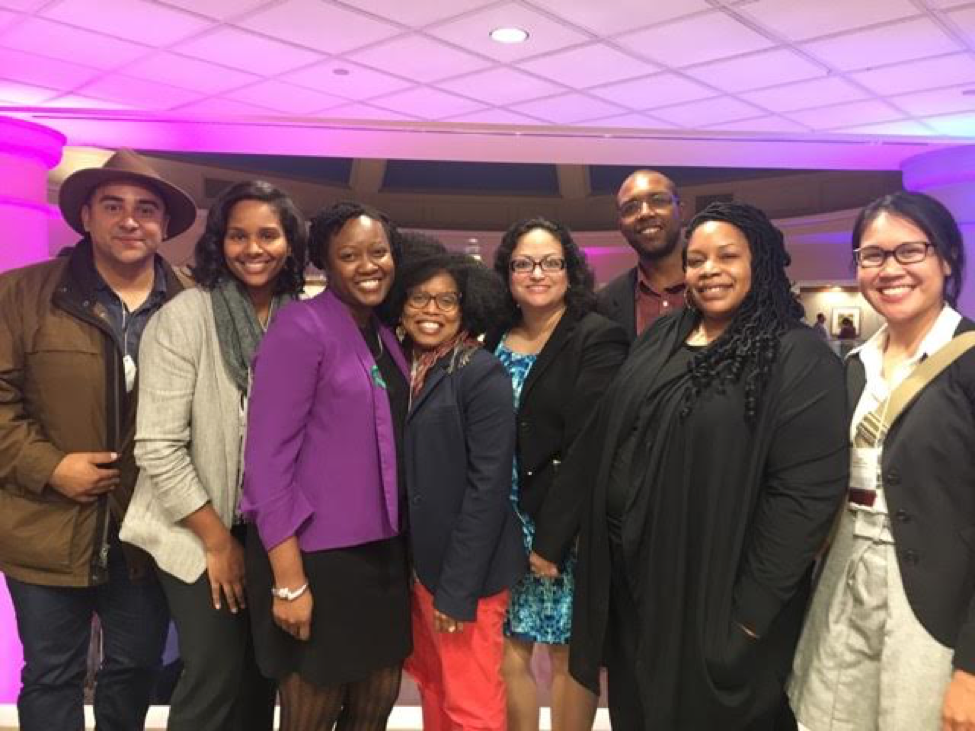Greetings, I am Frances Carter-Johnson, an Education Data Scientist responsible for evaluation, data analysis and building data analytic capacity within the National Science Foundation’s Division for Human Resource Development in the Directorate for Education and Human Resources.
To continue to move the Race and Class Dialogue forward, I want to take this opportunity to highlight alumni of AEA’s Graduate Education and Diversity Internship (GEDI) program who’s careers uniquely apply culturally responsive evaluation learned from the GEDI program. In celebration of the 15th Anniversary of the GEDI program, several AEA panels highlighted GEDI leaders, directors and alums. I’m excited to focus on unique links between the Race and Class Dialogue series and the current professional roles of a few GEDI alumni. Their experiences are ones that we can all consider as we all work to move the Race and Class dialogue and efforts forward in our professional and personal lives.
Hot Tip:
Culturally Responsive Evaluation (CRE) principles were applied throughout the Race and Class Dialogue and are critical to the evaluation community’s universal efforts to expand, improve and institutionalize evaluation into diverse organizations and environments.
Race and Class Lessons from the EVAL17 GEDI15 Alumni Panel:
- Tools, such as geospatial mapping, can be used to provide culturally responsive evidence for decreasing institutional and individual biases associated with race and class. Nichole Stewart, GEDI Alum from cohort 8 illustrated this in her talk, Mapping Equity in Educational Facilities Planning. Dr. Stewart, currently serves as Director of Facilities Planning for Baltimore City Public Schools where she uses a culturally responsive perspective to plan for public school facilities, including developing mapping tools to examine facility investments through an equity lens.
- Intentional focus on race and class is important to institutionalizing evaluation domestically as well as internationally. Neva Pemberton, GEDI Alum from cohort 6 and currently the International Chief of Education Planning for the Federation of St. Kitts and Nevis, discussed the successes and obstacles in building a culture of evaluation within the education sector in the Eastern Caribbean. Dr. Pemberton’s training in CRE, additional training with organizations such as UNESCO’s Institute of Education Planning, and intentionality towards relevant race and class issues for her environment are allowing her to influence education policies and practices aligned with United Nations Sustainable Development goals and to spread this influence to other nations.
Some of the GEDI15 Alumni Reflections Panel Participants (from Left to Right): Saul Maldonado, Brandi Gilbert, Jessica Johnson, Frances Carter-Johnson, Lisa Aponte-Soto, Chris St.Vil, Nichole Stewart, Alison Mendoza Walters
The American Evaluation Association is celebrating Multiethnic Issues in Evaluation (MIE) Week with our colleagues in the MIE Topical Interest Group. The contributions all this week to aea365 come from MIE TIG members. Do you have questions, concerns, kudos, or content to extend this aea365 contribution? Please add them in the comments section for this post on the aea365 webpage so that we may enrich our community of practice. Would you like to submit an aea365 Tip? Please send a note of interest to aea365@eval.org. aea365 is sponsored by the American Evaluation Association and provides a Tip-a-Day by and for evaluators.


Do you have links or additional resources to learn more about the CRE culturally relevant evaluation principles you reference in this post? Thank you for sharing this body of work and for shining a light on the wonderful GEDI alumni!